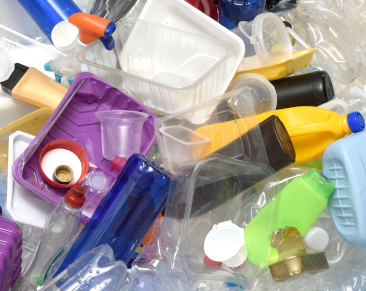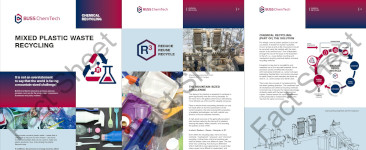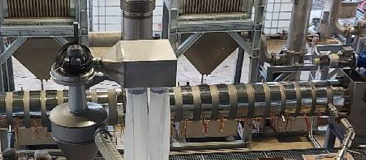Plastics are one of the most useful classes of material ever invented. For many of its applications, doing without plastic is almost unthinkable. However, plastic’s durability is also a disadvantage once it “leaks” out to the environment. So what do we do? We need to rethink living with plastics.
The demand for plastics is expected to increase significantly despite growing public demand that we use plastics more efficiently and handle waste plastic more effectively.
Strategies to deal with these issues vary in the details, but a consensus on the high-level approach to the problem is forming. That approach is often described by a very brief phrase. In order or priority it is “Reduce, Reuse, and Recycle”.
After making an honest assessment of global trends of human behavior, it is clear that reducing and reusing plastics will not, by themselves, solve the problem. Even if we stopped all production immediately, and re-use what we could, there would still be literal mountains of plastic waste all around the world.
So “Recycle” must play a role. There are many methods of recycling: mechanical, physical, chemical, and others. And here, it must be recognized that there is an important criteria in setting the heirarchy of the methods. Namely, the method that impacts the environment the least, should have highest priority and so on.
Employing this criteria leaves chemical recycling at, or at least very near, the bottom. Why? It takes more energy than most of the other methods to convert the plastic waste into useable materials to manufacture new products.
After all this, there is still a critical role for chemical recycling to play. There are many materials that are not able to be recycled by other methods or for applications where these other methods cannot provide the product quality and/or characteristics they require.
This is where pyrolysis, one type of chemical recycling and the basis of our technology, shines.
Our Chemical Recycling Technology Includes:
[sp_easyaccordion id=”110060″]
TITLE
[sp_easyaccordion id=”110150″]

Polymer Types
It is true, the “purer” and the “cleaner” a waste plastic stream is, the higher the yield of desirable product and the lower the operating costs. However, it also takes effort (in terms of equipment and energy) to separate polymer types and to ensure a minimum of impurities.
In some instances, it may be more environmentally friendly and economically sound to process the “mixed” and “dirty” stream with a process that is designed to handle it. This is where BUSS ChemTechs novel chemical recycling technology comes in. We can handle mixed plastic waste with the following properties:
- Polymer types: PE, PP, PA, PS, PC, ABS
- Paper, textiles, wood: max. 5-7%
- PVC: up to 3%
- Organics: max. 7-10%
- Moisture: max. 7-10%
Contact Us
* Required fields
Your Contact

Thomas Blocher
Business Manager Chemical Recycling
Other Topics of Interest

Fact Sheet:
Chemical Recycling
To learn more about our view of chemical recycling’s role, and pyrolysis in particular, as well a bit more about our technology, click below.

Our Scope of Supply
From technology packages to modular and turnkey solutions, click below to find out about our range of services.

Team & Skills
We have the relevant resources to deliver useful engineering documents, robust equipment and experienced personnel for your project. Click more to learn.